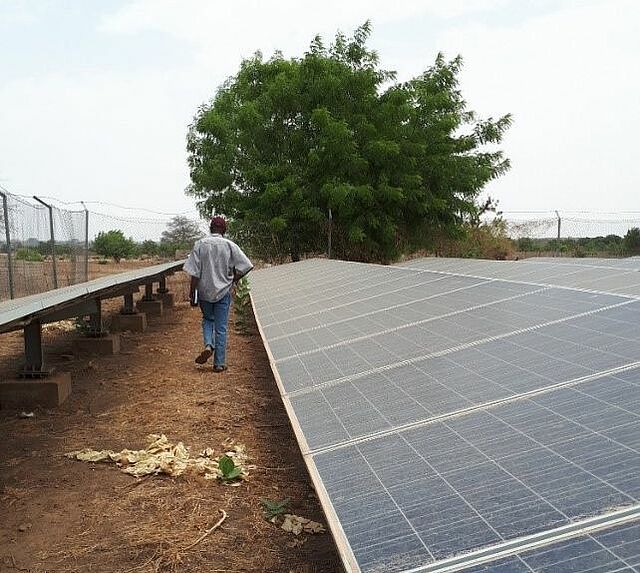
The Gambia government has signed a €32m grant and loan agreement with the European Union and the European Investment Bank (EIB) to support the implementation of a renewable energy project in the country.
The funding, includes a €24 million EU Global Gateway grant agreement alongside an €8 million loan from the EIB, will support the provision of renewable energy to over 1,000 schools and 100 health centres in rural parts of The Gambia.
The agreement was signed earlier this month on the sideline of the United Nations 5thConference for Least Developed Countries by EU Commissioner for International Partnerships, Jutta Urpilainen, Gambia’s Minister of Finance Seedy Keita, and EIB Vice-President, Thomas Östros.
“The project will transform the electricity sector of The Gambia via the ‘Solarization’ of up to 1,000 schools and 100 health facilities, especially in the remote areas of the country,” Keita said.
“Furthermore, it will provide beneficiaries in the education and health sectors with reliable and clean energy, thereby reducing our carbon footprint. We are towards the realization of universal access to electricity for all Gambians by 2025.”
The Gambia Renewable Energy project will increase energy supply in the country by over one-fifth upon completion, the officials said.
The project will also support the construction of a new 23 MWp solar photovoltaic plant at the village of Jambur.
“Affordable, reliable, and sustainable access to electricity for all is a Global Gateway priority.
This flagship green energy project is a fantastic win-win for climate action and human development, for empowering young people, and for creating more economic opportunities in the country,” Urpilainen stated.
“Investment in The Gambia’s energy infrastructure is essential to improve economic opportunities as well as better daily lives,” Östros added.
“Together, this scheme will enable The Gambia to be the first country in Africa to provide renewable energy electrification for all public schools and health facilities.”










Recent Comments